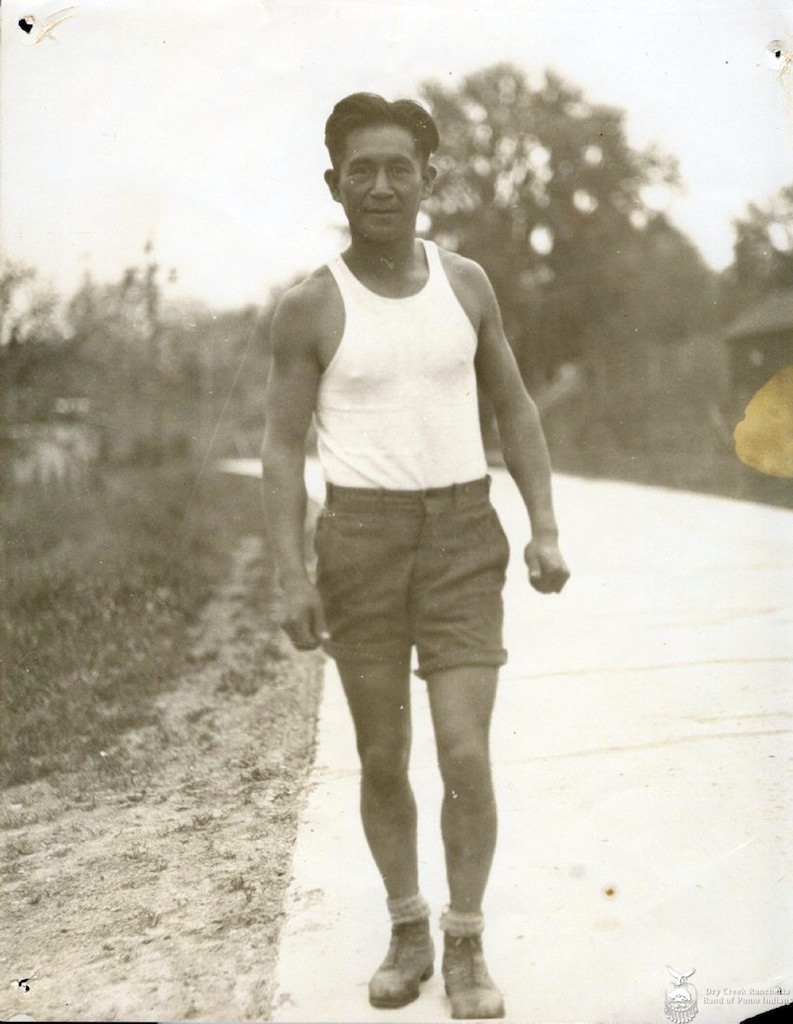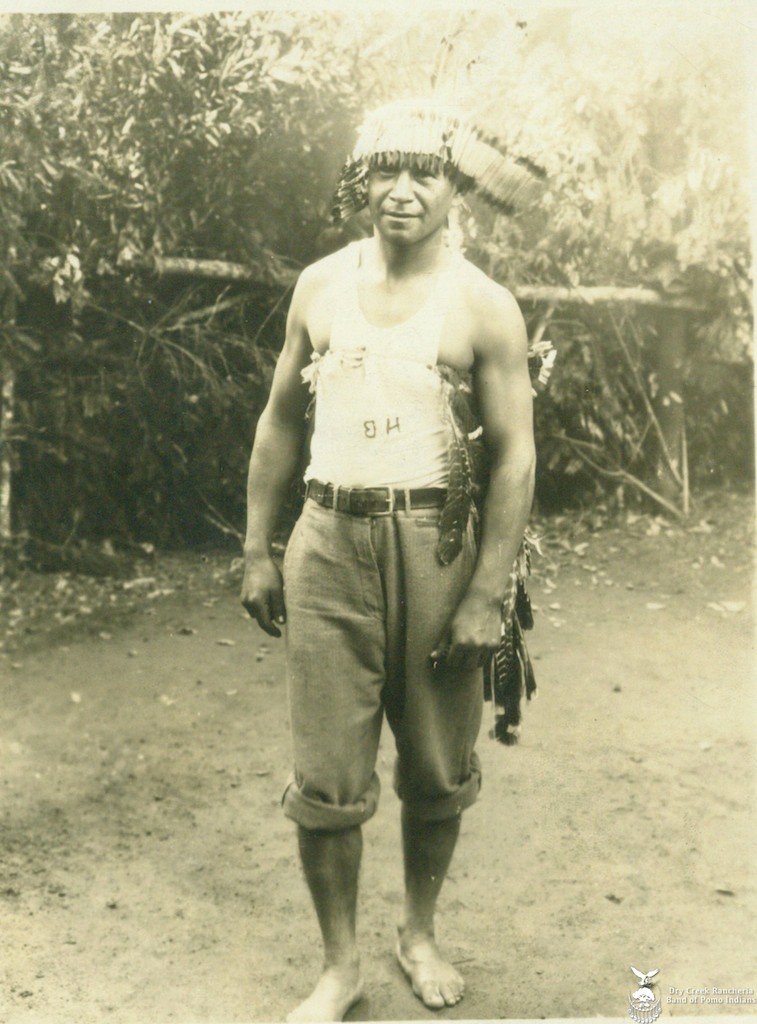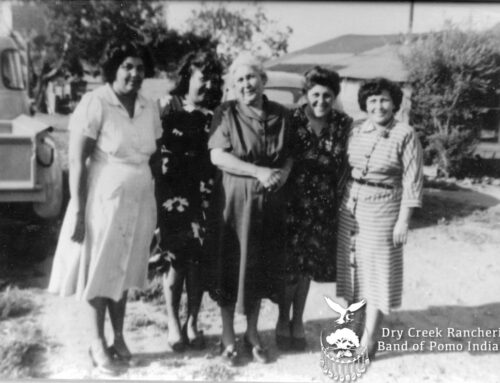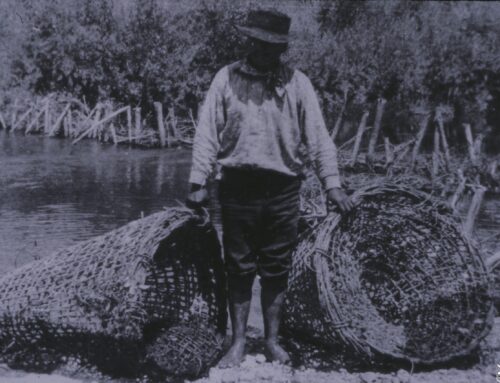
Manuel “Hummingbird” Cordova
Manuel Cordova was born Oct. 28, 1899 in Sonoma County. His mother, Nellie Lucas, was Dry Creek Pomo, his father, Bel Cordova, was a Mexican Indian. Manuel’s parents passed away while he was still young, so his maternal aunt, Maggie Wohoe, a well-known spiritual leader, and her husband, Jack Wohoe, a Wappo Indian from Alexander Valley, raised him as their own. While young, he attended Stewart Institute, an Indian boarding school in Nevada.
Manuel lied about his age to enlist in the United States Armed Forces, fighting overseas in World War I. Coming home safely at the end of the Great War, he settled in Sonoma County, marrying Louise Lozinto, who was also Dry Creek Pomo. Manuel and Louise’s son, Clarence Cordova, was born on the Dry Creek Rancheria in 1922.
Manuel lied about his age to enlist in the United States Armed Forces, fighting overseas in World War I. Coming home safely at the end of the Great War, he settled in Sonoma County, marrying Louise Lozinto, who was also Dry Creek Pomo. Manuel and Louise’s son, Clarence Cordova, was born on the Dry Creek Rancheria in 1922.
Manuel Cordova was locally known and admired for his athleticism, particularly his running ability. He regularly ran, and won marathons, including Healdsburg’s tough Fitch Mountain Marathon. In 1928 he was Healdsburg’s entry in the Redwood Empire Indian Marathon, running under his “Indian” name of Hummingbird, a fitting appellation for someone light, fast and strong.
The local paper described him as “perfect in his light weight form, with feet hardened like steel and a heart that never fails. Up hill is more easy for him than down hill … Manuel says he is going to win, and barring all unforeseen accidents, he is the boy that can do it.” Unfortunately, Manuel got violently ill early in the race, near Petaluma, and race doctors refused to let him continue. He went on to run and win other races, but he always regretted never finishing the Redwood Empire Marathon.
Manuel became a Pentecostal minister, with a special mission to bring God’s Word to Indian people. He traveled to remote rancherias and reservations, holding revival meetings where he would play music and preach. Manuel Cordova also worked tirelessly to help right the legal injustices done to California Indian peoples. As a delegate for the Indian Board of Cooperation, he traveled numerous times to Washington, D.C. lobbying for fair compensation to California Indians for the lands the federal government illegally took from them. The landmark California Indians Land Claims case, which was eventually decided in the Indians’ favor, bore Manuel’s name as a plaintiff. One of Manuel’s nieces remembers that her uncle always told her work for your people,” an adage he followed until his death in 1964.



